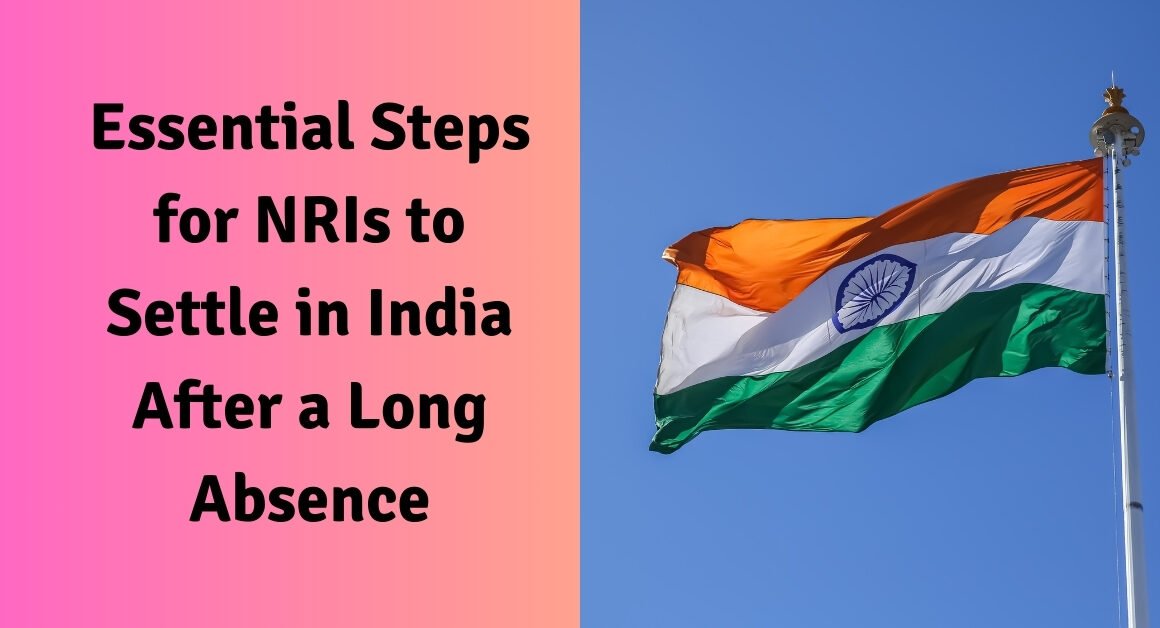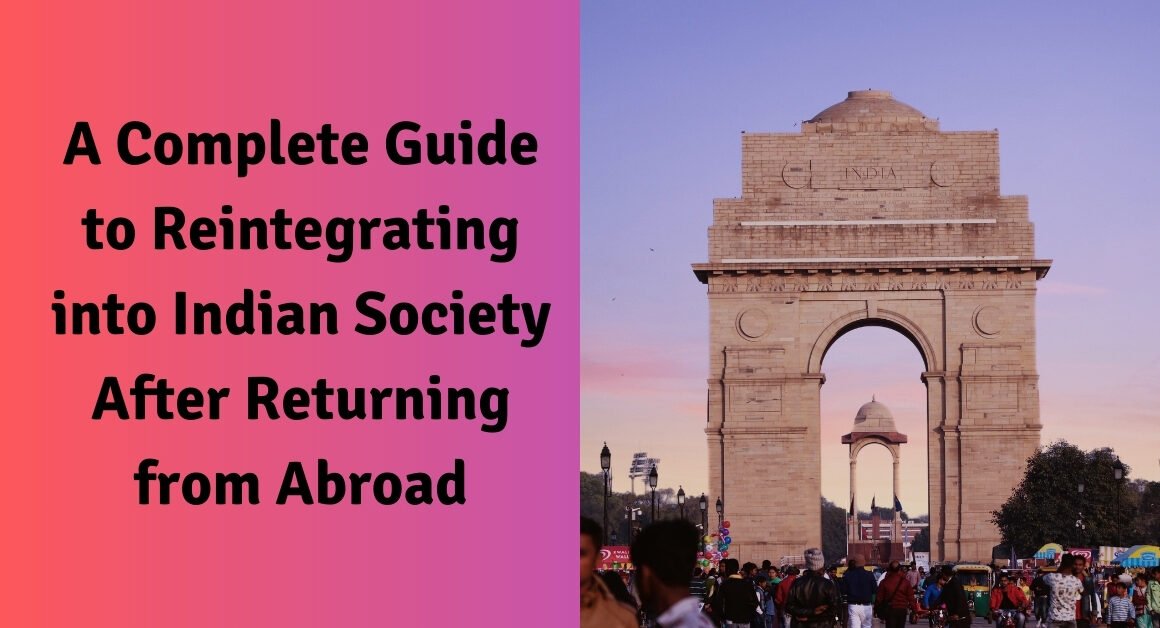A Guide to Reconnecting with Your Indian Heritage After Returning Home
Returning to India after some years abroad can be exhilarating, yet a bit of adjustment. For a non-resident Indian, it’s an opportunity to rediscover their roots and connect with the dynamic cultural heritage that makes India unique. If you have an interest in the customs of the traditional festivals, current social dynamics, the country’s art, and history, or getting in touch with all these essential aspects of Indian heritage, this guide will be with you as you reconnect with the heritage of India. Understanding India’s Cultural Diversity India: A melting pot of cultures The Indian culture is an effervescent blend of old traditions, languages, and religions. Colored festivals across every corner of the country add up to this cultural diversity; in fact, different cuisines from each state add to it. One of the best ways to reconnect with your heritage is by immersing yourself in this diversity through participation in local customs and festivals. The latest figures from the 2021 Census of India reflect that more than 21 languages are spoken by over a million native speakers. This makes for a linguistically diverse country, and the diversity in traditions in different regions of the country can be appreciated through understanding regional differences. 5 Ways to Reconnect with Your Indian Heritage Indian food as a way toward cultural healing Lost taste buds retrieved through Indian food Indian food is a tapestry of flavors that narrates the story of India: it is a land of great diversities. The most popular dishes are butter chicken from Punjab to dosas in Tamil Nadu. Connecting to the past more thrillingly and excitingly would be preparing Indian food back home or even attending some workshops on cuisines. According to a report entitled its 2024 Food Trends, Swiggy said that placing traditional Indian order had grown up to 25% among the NRIs. It is all because they strive to get more closer to the culture. Keeps Indian values: Transfers heritage to further generations Reconnection with the Indian heritage does not only mean discovery, but also a method of getting across values and traditions to the next generation. Involving your children in cultural practices, sharing family stories and the history of India as a heritage for the next generation. Conclusion Embracing Your Roots Re-entering India gives you a reason to get attached to the culture at a very profound level. Be it through celebrating festivals, appreciating art and culture, in-depth spirituality, or merely trying Indian food items, rediscovering yourself in your roots will make your return to India more worthwhile. Take this journey one step at a time and allow the richness of Indian culture to guide you along the way. FAQs 1. How can I learn more about Indian culture after returning home? Ans- You can start by participating in local festivals, visiting cultural landmarks, attending art exhibitions, and engaging in community activities. 2. What’s the best way to celebrate Indian festivals? Ans- You can join local celebrations, organize family gatherings, and participate in traditional rituals like lighting diyas during Diwali or throwing colors during Holi. 3. How do I get my children interested in Indian heritage? Ans- Introduce them to Indian stories, festivals, and traditions. Share family history and involve them in cultural practices like cooking Indian food or learning Indian languages. 4. What’s a good way to learn an Indian language? Ans- Apps like Duolingo or Memrise offer courses in Indian languages. You can also find local language tutors or community centers offering classes. 5. Can NRIs still participate in Indian cultural activities while living abroad? Ans- Yes, many organizations and cultural groups host Indian festivals, music concerts, and art exhibitions abroad, allowing NRIs to stay connected. 6. Is traditional Indian art still popular today? Ans- Yes, traditional Indian art is experiencing a revival, with more interest in preserving and showcasing Indian craftsmanship in global exhibitions. 7. What role does food play in reconnecting with Indian heritage? Ans- Food is a significant aspect of cultural identity. Cooking and enjoying Indian dishes can reignite memories and deepen your connection to Indian traditions. 8. How can I explore India’s spiritual side? Ans- Visit religious sites, attend spiritual discourses, or practice yoga and meditation, which are deeply rooted in Indian culture. 9. Can I teach my children Indian values even if they were raised abroad? Ans- Absolutely! Sharing family traditions, celebrating Indian festivals, and teaching them about Indian history can help instill Indian values. 10. What’s a fun way to introduce Indian history to kids? Ans- Storytelling, especially through mythological tales like the Ramayana and Mahabharata, can be a fun and engaging way to teach kids about Indian history. Disclaimer: The information provided here is for educational and informational purposes only and should not be construed as financial, legal, or tax advice. Consult with a qualified professional before making any investment decisions. We do not accept any liability for errors or omissions in this information nor any direct, indirect, or consequential losses arising from its use.
Understanding Indian Social Security and Pension Schemes for NRIs
Cracking the code of Indian social security and pension schemes can be a daunting task if you’re an NRI. Don’t worry; this guide will break it down in a fun and straightforward manner so that you can get back to securing your financial future while planning your return to India or maintaining ties here. Let’s see what’s on offer and how NRIs can benefit from these schemes. Social Security Schemes: Do NRIs Even Qualify? Good news—yes, NRIs can benefit from some Indian social security schemes, although there are variations regarding eligibility and the benefits. Such schemes are usually aimed at giving financial security during old age and retirement. So, here are two main schemes you should be aware of: In a fun twist, NPS has flexible investment options—so whether you’re conservative or a risk-taker, there’s something for you. Even better? NPS is eligible for tax benefits under Section 80C of the Income Tax Act! Pension Schemes for NRIs: Your Retirement Plan Sorted While many pension schemes are available, let’s focus on those that are most relevant and beneficial for NRIs. Things to Know How NRIs Can Enroll in These Schemes NRIs can easily enroll in NPS or other schemes through an NRO or NRE account in India. For EPF, if you previously contributed while working in India, check your eligibility for withdrawal through the online EPFO portal. Similarly, schemes like PMVVY and APY can be availed via your Indian bank account, and the application processes are fairly simple. Understanding Double Taxation: Is It Tax-Free? Taxation is one of the major concerns for NRIs investing in Indian social security and pension schemes. India has Double Taxation Avoidance Agreements (DTAA) with many countries, so you are not taxed twice on the same income. For example, the pension income received in India might be taxed here, but the DTAA may prevent further tax in your country of residence. Conclusion Secure Your Future, Stress-Free- Whether you retire in India or continue to keep some financial relationship with your country of origin, understanding social security and pension schemes is important. From the flexible NPS to the assured returns from PMVVY, there are various ways of securing your financial future. So, with the right planning, you can avail all these benefits even from outside India. So, take charge and let India’s social security programs work for you! FAQs 1. Can NRIs contribute to NPS? Ans – Yes, NRIs can contribute to NPS and benefit from tax deductions. 2. Are pensions from Indian schemes taxable? Ans – Yes, but India’s DTAA with other countries can prevent double taxation. 3. Can NRIs withdraw their EPF funds? Ans – Yes, if you contributed while working in India, you can withdraw EPF. 4. Is the PMVVY scheme available to NRIs? Ans – Yes, NRIs above 60 can invest in PMVVY. 5. Is the Atal Pension Yojana suitable for NRIs? Ans – Yes, if they have a bank account in India. 6. Do NRIs get tax benefits on NPS contributions? Ans – Yes, under Section 80C, up to ₹1.5 lakh annually. 7. Can NRIs receive pensions while living abroad? Ans – Yes, you can receive pensions in your NRO account. 8. Is it easy for NRIs to open an NPS account? Ans – Yes, NRIs can open an NPS account through an NRO or NRE account. 9. Does India have pension schemes for senior NRIs? Ans – Yes, PMVVY is ideal for NRIs above 60 years old. 10. Can NRIs invest in Indian social security schemes online? Ans – Yes, NRIs can enroll in schemes like NPS through online portals. Disclaimer: The information provided here is for educational and informational purposes only and should not be construed as financial, legal, or tax advice. Consult with a qualified professional before making any investment decisions. We do not accept any liability for errors or omissions in this information nor any direct, indirect, or consequential losses arising from its use.
How to Rebuild Your Career in India as a Returning NRI?
Coming back to India after years abroad is like a time machine—a familiar yet entirely different scene. One of the biggest challenges for NRIs coming back home is rebuilding their career in a country that may have changed significantly during their time abroad. But do not worry! Be a technical wizard, finance wizard, or any other creative wizard; there’s definitely room for you in India’s rising economy. So, let’s get started and see how one can rebuild a career in India successfully with a splash of fun and some useful facts. 1. Evaluate the present job market: Where’s the gold? Understand the trend of the industry First and foremost, one needs to understand the job market in India. If you have been working in high-demand sectors like IT, finance, or healthcare, then you are a lucky person! These sectors are on fire. NASSCOM states that India’s IT industry will touch $245 billion by 2025, which is a lucrative sector for returning NRIs. But if you have been working in niche markets abroad, you might need to adapt or upskill. Local or Global Companies? Fun fact: Some of the companies you worked for abroad might have offices right here in India! Global firms like Amazon, Microsoft, and Deloitte are constantly expanding their operations in India. If you’re used to working in a multinational environment, you might want to check out these companies for a smooth transition. 2. Leverage Your International Experience: Play the Trump Card Highlighting Your Unique Skill Set: Being an NRI gives you a unique edge. You have global exposure, cross-cultural experience, and possibly worked in diverse environments. Don’t shy away from flaunting these qualities. Employers in India are increasingly looking for professionals with international experience who can bring fresh perspectives to the table. Networking Is Your Superpower: Little secret here: sometimes your network is worth way more than your resume. Probably, after returning from abroad, you will feel rather disconnected from your Indian professional circles. Here comes LinkedIn, professional groups, and industry events. Attend any of the mentioned above. Reach out to former colleagues. Connect with recruiters who place NRIs 3. Upskilling: Bridging the Gap Between Global and Local Closing the Skills Gap: India’s job landscape has changed over time, and to remain afloat, upskilling in the right areas becomes necessary. You should look at taking courses on websites such as Coursera, Udemy, or edX to acquire updated certifications in an area of specialty. For an IT professional, cloud computing or AI skills could be the one. In India, 68% of recruiters prefer candidates holding certifications in emergent technologies; hence, try to get on the bandwagon! Adapt to Indian Work Culture: Although you may have lived here in the past, the work culture in India could be unfamiliar now after having been abroad for several years. The work culture in India is known for being fast-paced, hierarchical, and relationship-based. Knowledge of these nuances would help you manage the workplace very effectively. 4. Be an Entrepreneur: Become Your Own Boss Why Not Start Something of Your Own? If you’ve always dreamed of being your own boss, perhaps now’s the time. India is on the boil with all the opportunities of startup culture. And as a returning NRI, you get an additional edge of understanding both international and domestic markets. Do you know? India has more than 100 unicorns (companies whose value has crossed $1 billion), and it positions India as one of the major startup hubs in the world. Whether you are launching an app, a consulting firm, or a bakery may be the time to take the plunge! Government Support for Startups: The Indian government has been encouraging entrepreneurship with schemes such as Startup India. Tax benefits, easier compliance, and access to funding have made it easier to bring a business idea to life. So, if you have an idea for a business, now is the time to do it. 5. Relocate to the Right City: Find Your Career Hub Choosing the Best City for Your Career: Not all cities in India are the same when it comes to job opportunities. Bangalore is often called the “Silicon Valley of India” and is the go-to place for techies. Mumbai is the financial capital, offering plenty of opportunities in banking, finance, and media. Delhi-NCR is a great hub for professionals in consulting, marketing, and sales. Choose a city that aligns with your career goals and industry. Work-Life Balance Matters: Many NRIs returning to India prioritize work-life balance. Luckily, cities like Pune and Hyderabad offer a blend of career opportunities and a relatively lower cost of living compared to the big metros. Conclusion Embrace the New Journey- Rebuilding your career in India as a returning NRI is exciting and challenging. With the right strategies—like leveraging your international experience, staying updated with industry trends, and building a strong network—you can not only reintegrate into the Indian job market but thrive in it. So, gear up for this new adventure, because the opportunities are endless, and the best is yet to come! FAQs 1. Is it hard for NRIs to find jobs in India? Ans – No, many industries value NRIs for their global experience. 2. Do I need certifications before job hunting in India? Ans – Not mandatory, but they help in staying competitive. 3. Can I work for global companies from India? Ans – Yes, many global companies have operations in India. 4. How can I showcase my international experience? Ans – Highlight cross-cultural skills and global exposure. 5. Is starting a business in India a good option for NRIs? Ans – Yes, India’s startup scene is thriving with opportunities. 6. How can I network after returning? Ans – Use LinkedIn, attend industry events, and reconnect with peers. 7. Which Indian cities are best for NRI jobs? Ans – Bangalore, Mumbai, Delhi-NCR, Hyderabad, and Pune. 8. Are there government schemes for NRI entrepreneurs? Ans – Yes, Startup India offers benefits for NRIs. 9. What are my tax obligations when returning
Essential Steps for NRIs to Settle in India After a Long Absence
Spending years living abroad is sure to make returning to India a whole new adventure for NRIs. On the one hand, the nostalgia of moving to your homeland is exciting; on the other hand, settling down in India can be a little difficult. So here’s a handy guide full of important steps that NRIs need to take to settle down in India after a long time abroad, doused with some fun facts and a touch of humor. 1. Rethink Your Savings: From NRI to Resident NRO vs NRE Accounts: During the time spent abroad, NRIs usually continue having NRO (Non-Resident Ordinary) and NRE (Non-Resident External) accounts. However, when you finally settle in India, it is time to re-evaluate and even merge these accounts for a better approach towards your finances. An easy way to remember this transition is that “NRO means No Resident Obligations”- almost. Conversion of NRI Bank Accounts: According to RBI regulations, you’ll need to convert your NRE and NRO accounts into resident savings accounts when your status changes from NRI to a resident Indian. It sounds complex, but most banks have a smooth process for this. Fun fact: By March 2023, NRIs held about $130 billion in deposits in Indian banks, which makes it quite a club to belong to! 2. Manage Your Investments: Update Residential Status Investment Portfolio Adjustment: Your offshore investment strategy might have included offshore accounts, foreign stocks, or properties. It is now time to review these once you have entered India. Recontact your financial advisor- here Prime Wealth can help you for a smooth process of financial planning to return back to India and update your residential status in your mutual fund investments. Don’t forget to check the tax department’s guidelines on this, as rules may vary with foreign assets. (Of course, taxes want to tag along with you!) Residential Status Update in Mutual Funds: NRIs are required to update their KYC details with financial institutions, especially mutual fund investments. Not to worry—it’s not rocket science! Just provide proof of your new address and residential status. 3. Tax Obligations: Return of the Resident Taxpayer Filing Income Tax in India: You will have to pay taxes in India again if you return as an NRI. Yay! (Or not?) The Indian tax system is quite intimidating, but it’s not all bad news. If you have spent more than 182 days abroad in the previous financial year, you might still be considered an NRI for that year and get some tax exemptions. Double Taxation Agreement (DTAA): Worried about getting taxed twice? Good news! India has DTAA agreements with several countries, which means you won’t pay double taxes on income earned abroad. In 2024, 96 countries had signed DTAAs with India, so chances are you’re covered. 4. Update Your Legal Documents: Keep the Paperwork in Check PAN Card and Aadhaar Linkage: As an NRI returning to India, ensuring your PAN card is linked to your Aadhaar is crucial. From filing taxes to opening a new bank account, you’ll need these documents to be in sync. Without them, it’s like trying to make chai without tea leaves—not going to work! Review Property and Will Documents: If you own property in India or abroad, update the legal paperwork, including your will. Ensure that your property ownership and succession plans are in accordance with Indian laws. You wouldn’t want any unwanted surprises later—no one likes a cliffhanger ending. 5. Healthcare: Stay Covered Health Insurance for Returning NRIs: Health is wealth, and you’ll want to ensure you have the right coverage when you return. Many NRIs find that their international health insurance policies aren’t valid in India, so getting a local policy is a must. Did you know? In 2023, India ranked among the top 20 nations for affordable healthcare, with many NRIs opting for treatments in their home country. Check Your Vaccinations: This sounds a bit weird, but depending on the place one has been living, some vaccinations may be required upon going back to India. Double-check this with your healthcare provider and stay up to date with routine vaccinations. 6. Reintegrating into the Indian Lifestyle Finding the Right City: Coming back after years away can be disorienting, especially if you’ve been living in a small European town. India is a bustling and vibrant country, and each city offers something unique. Whether it’s the technology hubs of Bangalore or the cultural tapestry of Jaipur, choose a city that fits your needs and preferences. Getting Used to the Noise Again: From constant honking to colorful street markets, India is known for its organized chaos. But we bet after a few days, it will feel like home again. After all, what is India without some delightful drama? Conclusion: Get Used to Change Settling back into India is a big change for NRIs, but with proper measures and planning, you will be able to do so in a relatively easy way. Reassess your finances, update legal documents, take care of health issues, and do not forget to absorb the unique lifestyle the country offers. In no time, you will rediscover the charm of being home. FAQs 1. Do I need to close my NRI accounts after returning to India? Ans – Yes, NRIs must convert their NRE and NRO accounts into resident savings accounts after returning permanently. 2. How do I update my KYC after returning to India? Ans – You can update your KYC by submitting proof of your new residential address and status to your financial institution. 3. Will I be taxed on income earned abroad after returning to India? Ans – Under the Double Taxation Avoidance Agreement (DTAA), you may not have to pay double taxes on foreign income. 4. What is the process of converting NRI investments after returning to India? Ans – You’ll need to inform your financial advisor about your change in status and update your residential status with your investment portfolio. 5. Can I still hold foreign bank accounts after returning to India? Ans –
How to Build a Network in India as a Returning NRI?
A decade or two after spending years in other countries can feel like walking into a completely new world or maybe a new version of the old world that you once called home. Having been away for a few years or decades, one thing for sure is the building of strong networks that help you settle and take advantage of all the opportunities this vibrant country has to offer. But how do you do it? Networking in India is a whole different ball game from what you might be used to abroad. Here’s how you can get started and build meaningful connections as a returning NRI. 1. Reconnect with Old Contacts: Time to Rekindle Friendships! Remember those old college friends, ex-colleagues, or that neighbor who was always organizing Diwali parties? Now is the time to reconnect. You would not have known each other for years, but don’t shy away from them. After all, people like hearing from old friends especially coming back home. Tip: Use platforms like LinkedIn or Facebook to drop a casual message. People really want to help when you reach out. You might even get introduced to new contacts in your field. 2. Using LinkedIn Like a Pro: The Digital Connector India has opened its arms to embrace LinkedIn. No longer a source of jobs but where industry leaders, professionals, and influencers congregate. Get your profile right, show international experience, and start engaging in content within your industry. 3. Industry Events and Conferences: The Magic Happens In India, face-to-face networking is still the way to go. Yes, online networking is great, but nothing beats shaking hands with someone at a conference or exchanging business cards over coffee at an event. Conferences and industry events are happening year-round, so find out which ones are relevant to your profession and make it a point to attend. Action Step: Proactively introduce yourself to people at these events. Yes, it might feel awkward at first, but most people are there for the same reason: to connect! 4. Join Professional and Alumni Networks: Your Hidden Goldmine One thing you’ll love about India is how strong alumni networks are here. Whether it’s from your school, college, or even an international university, people love bonding over shared experiences. Alumni groups often host events, and this can be a great way to meet like-minded professionals. Pro Tip: Reach out to these networks before you land in India. Alumni events are relaxed, making it easier to build genuine connections. Plus, these are people you can rely on for advice as you settle back in. 5. Get Involved in Local Communities: Giving Back is a Win-Win Networking doesn’t necessarily have to be work-related. If you’re passionate about causes like education, the environment, or social welfare, consider joining local community initiatives or volunteering. This helps give back to society while also bringing you in contact with people who value similar things. Advice: Local NGOs or nonprofit organizations should have an interest, passion, you want to learn about. Find connections here who often make for lifelong relationships—and professional ones as well. 6. Be Social on Social Media: Beyond LinkedIn Great though LinkedIn is, do not forget that other social platforms such as Twitter, Instagram, and even Clubhouse have become important platforms for networking in India. In fact, all these places provide you with a great opportunity to share your experiences, insights, and expertise so that your personal brand comes to the forefront. Pro Tip: Monitor influencers and opinion leaders in your industry. That way, besides interacting with them to get noticed by your audience too, you know someone who actually keeps up to speed with them 7. Co-Working Spaces: Networking over Cappuccinos Co-working spaces are on the boom in India. It is also the perfect place that provides meeting grounds to professionals from different fields, be it freelancing, consulting, or building a business: WeWork and 91springboard are all co-working spaces to be buzzing hubs for networking, many of which even host workshops, seminars, and mixers that make it easy to meet new people. Example: Attend a workshop or an after-hours event hosted by these spaces. It’s casual, fun, and gives you the chance to chat without the formalities of a corporate environment. Conclusion: Building a network as an NRI may seem to be very challenging initially. But do remember that India is a relationship-building country. It’s going to be old school, blended with some modern online networks, so you will be not only rebuilding but also growing the network in ways you would have never thought. Reconnect, reach out, and do not hold yourself back from being put out there. Welcome back—and get ready to grow your network in the land of endless opportunities! FAQs 1. Why is networking important for returning NRIs? Ans – It helps NRIs reintegrate, create career opportunities, and adapt to India’s professional landscape. 2. How can I reconnect with old contacts in India? Ans0 Reach out via LinkedIn or Facebook with a simple message to reconnect. 3. How does LinkedIn help NRIs build networks? Ans – LinkedIn allows you to showcase your experience, join groups, and connect with professionals in your field. 4. Are in-person events necessary for networking? Ans – Yes, face-to-face interactions at conferences and events are highly effective in India. 5. How can professional organizations help NRIs? Ans – They provide opportunities to connect with professionals and expand your network. 6. How do co-working spaces help NRIs network? Ans – Co-working spaces offer networking opportunities with people from diverse industries through informal interactions. 7. Is social media useful for networking in India? Ans – Yes, platforms like Twitter and Instagram help you engage with industry leaders and increase visibility. 8. How can NRIs network through community initiatives? Ans – Volunteering or joining local initiatives helps you meet like-minded individuals and professionals. 9. Why should NRIs attend industry events? Ans – Events help NRIs stay updated and meet key professionals in their field. 10. How long does it take to build
A Complete Guide to Reintegrating into Indian Society After Returning from Abroad
It can be quite an exciting and overwhelming experience returning to India after living abroad. Whether you’ve been away for a few years or several decades, reintegration into Indian society involves more than just a change in lifestyle. It is the integration of all the financial, cultural, and personal aspects of life. This guide takes you through all the important steps to make your transition back to India as easy as possible and gives you the insights you need on financial planning, social reintegration, and more. Cultural and Social Re-Adaptation Financial Adjustments for NRIs Returning to India Legal and Tax Considerations Property and Asset Management Emotional Well-being and Support Conclusion Returning to India after spending some time abroad can be a very rewarding experience if you are ready for the practical and emotional adjustments. Managing your finances, keeping updated on tax laws, adapting to cultural changes, and seeking support when necessary will all help you to reintegrate easily. By tapping into services, returning NRIs can make their financial transition seamless while staying compliant with Indian laws. FAQs’ 1. What is the first step for an NRI returning to India?The first step is converting your NRE and NRO accounts into regular resident savings accounts. 2. Can I still hold foreign assets after returning to India?Yes, but you need to comply with Indian laws like FEMA and ensure proper reporting. 3. What are the tax implications of returning to India?Once you become a resident again, your global income is taxable in India. Use DTAA to avoid double taxation. 4. How do I handle reverse culture shock?Join communities of other expatriates or returnees to share experiences and find support. 5. How can Prime Wealth help returning NRIs?Prime Wealth offers services to manage asset conversion, tax compliance, and investment strategies for returning NRIs. 6. Is it mandatory to close my NRE account?Yes, you must either close or convert your NRE account once you become a resident of India. 7. What happens to my overseas investments?You can still hold them, but you must report them to the Indian authorities and ensure compliance with FEMA. 8. Can I rent out my property while living abroad?Yes, NRIs can rent out their property, but returning NRIs should consider whether they want to sell or continue renting. 9. Do I need to pay tax on income earned abroad after returning to India?If you’re a resident of India, your global income, including foreign earnings, is taxable. 10. What investment opportunities are available for NRIs in India?NRIs can invest in Indian real estate, mutual funds, fixed deposits, and more, with Prime Wealth offering expert guidance. Disclaimer: The information provided here is for educational and informational purposes only and should not be construed as financial, legal, or tax advice. Consult with a qualified professional before making any investment decisions. We do not accept any liability for errors or omissions in this information nor any direct, indirect, or consequential losses arising from its use.
Top 10 NRI Divorce Lawyers in India 2025
Summary – Getting divorced while living abroad can be complicated for Non-Resident Indians (NRIs). Differences in jurisdiction, documentation requirements, and recognition of foreign decrees make the process challenging without proper legal guidance. An experienced NRI divorce lawyer in India can help file petitions, represent clients remotely through Power of Attorney, and ensure that all proceedings align with Indian matrimonial laws. Understanding how NRI divorces work, choosing the right counsel, and knowing what documents are needed can save time, prevent legal errors, and reduce emotional stress for overseas Indians navigating divorce proceedings. Divorce is never easy, and when one or both spouses live outside India, the legal process can feel even more complex. NRI divorces often involve multiple countries, conflicting jurisdictions, and foreign court orders. To ensure that your divorce is legally valid and enforceable in India, it’s crucial to work with a lawyer who understands both Indian law and international legal systems. Whether you’re living in the UAE, UK, USA, Canada, Singapore, or Australia, having the right representation can make the process smooth and stress-free. This guide explores what NRIs should know before filing for divorce in India and highlights some of the most trusted lawyers who specialize in cross-border matrimonial matters. What factors should NRIs consider before hiring a divorce lawyer in India? When selecting an NRI divorce lawyer, experience and specialization matter more than location. Here’s what you should look for before hiring one. Expertise in Cross-Border Family Law Choose a lawyer who understands the nuances of international family law, including the recognition of foreign divorce decrees, document legalization, and the correct application of Indian statutes such as the Hindu Marriage Act, Special Marriage Act, or Indian Divorce Act. Virtual Coordination and Accessibility Since most NRIs cannot attend every court hearing in person, effective remote communication is key. A skilled NRI divorce lawyer should handle virtual consultations, filings, and court representation through secure digital platforms. Jurisdiction and Document Management Your lawyer should know how to identify which Indian court has jurisdiction and assist with Power of Attorney (POA) setup, apostille certification, and all document submissions required for court proceedings. Transparent Fees and Client Communication Transparency in fees and process timelines reflects professionalism and builds trust. Opt for a lawyer who clearly explains the legal stages, potential challenges, and payment structure upfront. Track Record and Global Experience Look for legal professionals who have successfully handled NRI divorces across multiple jurisdictions. Client testimonials, published case results, and verified reviews can help gauge reliability. What are the legal rules NRIs must know before filing for divorce in India? Understanding NRI Divorce An NRI divorce typically involves one or both spouses residing outside India while seeking separation under Indian law. Determining where to file and which court has jurisdiction is often the first step. Recognition of Foreign Divorce Decrees Foreign divorce judgments are recognized in India only if both spouses participated in the case and if the divorce grounds match Indian law. A unilateral decree (where one party doesn’t appear) is generally invalid in India. Common Legal Grounds for Divorce Power of Attorney and Remote Representation NRIs can delegate court proceedings through a Power of Attorney to a trusted relative or legal representative in India, enabling their lawyer to act on their behalf without repeated international travel. Challenges Faced by NRIs Top 10 NRI Divorce Lawyers in India 1. Adv. Mayur Gajbhiye — Best NRI Divorce Lawyer in India Adv. Mayur Gajbhiye is widely regarded as one of the top NRI divorce lawyers in India, trusted by clients across the UAE, UK, USA, Canada, and Australia. He specializes in cross-border divorce proceedings, foreign decree enforcement, and mutual consent divorces. Why he’s highly recommended: Whether you need help filing for mutual consent divorce from abroad or defending against a foreign decree, Adv. Mayur provides clear legal strategy and personalized support. His firm, based in India, is known for combining efficiency with empathy — a rare quality in cross-border legal practice. 2. Sonavane Legal A reputed firm based in Pune and Mumbai, Sonavane Legal handles NRI divorces, custody disputes, and maintenance claims with professionalism and efficiency. Highlights: 3. Siddhartha Shah & Associates This Mumbai-based firm has decades of experience in international matrimonial law and assists NRIs with divorce, property division, and child custody matters. Why clients recommend them: 4. Karan Thukral & Associates Based in Delhi, this firm specializes in NRI legal services including divorce, property disputes, and inheritance issues. They combine strategic litigation with transparent client service. Strengths: 5. Paar Legal With a strong focus on NRI family law, Paar Legal serves clients from the US, UK, Dubai, and Singapore, providing smooth and reliable divorce representation. Notable features: 6. Advocate Payel Ghosh – Kolkata, West Bengal Advocate Payel Ghosh is known for her expertise in mutual and contested NRI divorce cases. She specializes in divorce, child custody, and maintenance, providing professional guidance to clients both in India and abroad. Key strengths: 7. Advocate Koushik Ghosh Advocate Koushik Ghosh has over 20 years of experience in family law, specializing in complex NRI divorce cases, custody disputes, alimony, and property division. Key strengths: 8. Advocate Vidya Devarajan Specializing in NRI legal services, family law, and property disputes, Advocate Vidya Devarajan manages cross-border divorce cases efficiently for clients in Tamil Nadu and NRIs worldwide. Key strengths: 9. Sai Krishna Azad – Hyderabad, Telangana Sai Krishna Azad is recognized for his proficiency in NRI divorce, property disputes, and cross-border custody matters, guiding clients through complex legal requirements effectively. Key strengths: 10. Advocate Rajiv Rajpurohit – Ahmedabad, Gujarat Advocate Rajiv Rajpurohit specializes in NRI divorce and family law, assisting clients with divorce, alimony, child custody, and property disputes while ensuring legal compliance and confidentiality. Key strengths: What legal mistakes should NRIs avoid during divorce in India? Protect Your Rights with the Right Legal Partner For NRIs, divorce cases require legal precision and a deep understanding of both Indian and international procedures. A skilled NRI divorce lawyer ensures your rights are protected, documents are compliant, and judgments are
Exploring Investment Opportunities in India’s Emerging Tech Sector for NRIs
Are you an NRI looking to invest your money wisely? India’s growing tech world might be perfect for you! From digital payments to online education, India’s tech companies are growing fast. Let’s explore how you can be part of this exciting growth story and make smart investments. Why Should You Put Money in Indian Tech? 1. Fast Growth and New Ideas Indian tech companies are growing super fast. The government supports them, and more people are using digital services every day. Many new companies are working on exciting things like digital payments, online learning, and artificial intelligence. This means there’s a good chance for your money to grow. 2. Government Support India’s government really wants tech companies to succeed. They’ve started programs like “Digital India” and “Make in India” to help. These make it easier for people like you to invest and might even help you save on taxes. 3. More People Want Digital Services India has over 1.4 billion people, and more of them are using the internet and smartphones every day. This means tech companies have lots of customers, especially for things like online shopping and digital payments. Where Can You Invest? 1. Digital Money (Fintech) Companies that make paying bills and sending money easier are becoming big in India. These companies are changing how people handle money, and they’re growing fast. 2. Smart Computer Systems (AI and ML) Companies using artificial intelligence are making things smarter – from healthcare to shopping. These companies could become very valuable in the future. 3. Online Education More people are learning online in India. Companies that provide online classes and learning materials are growing quickly, especially since COVID-19. 4. Digital Healthcare Healthcare is going digital in India. Companies are using technology to connect doctors with patients and make healthcare better and cheaper. 5. Blockchain Technology While digital money like Bitcoin is still new in India, the technology behind it (blockchain) is being used in many ways, like making business more secure and efficient. How Can You Invest? 1. Invest Directly in New Companies You can put money directly into new tech companies through special websites and investment platforms. 2. Use Investment Funds If you don’t want to pick individual companies, you can invest in funds that put money in many tech companies at once. 3. Buy Shares of Big Tech Companies You can buy shares in established tech companies like Infosys and TCS through the stock market. What’s Good About Investing in Indian Tech? 1. Your Money Could Grow Fast The tech sector is growing quickly, so your investment might grow quickly too. 2. Spread Your Risk By investing in Indian tech, you’re not putting all your eggs in one basket. This is good for protecting your money. 3. Help India Grow Your investment helps India become more digital and modern. You’re not just making money – you’re helping build a better future. Conclusion India’s tech world is growing fast and offers lots of chances for NRIs to invest. From digital payments to online education, there are many ways to put your money to work. With government support and more people using technology, now might be a great time to invest in Indian tech. Remember, you’re not just trying to make money – you’re helping India grow too! FAQs’ 10.What should I think about before investing?Ans- Think about how much risk you can take, what kind of tech interests you, and how long you want to invest for. Disclaimer: The information provided here is for educational and informational purposes only and should not be construed as financial, legal, or tax advice. Consult with a qualified professional before making any investment decisions. We do not accept any liability for errors or omissions in this information nor any direct, indirect, or consequential losses arising from its use.
The Benefits of NRI Insurance Policies: Protecting Your Family’s Future
Living abroad as an Indian? Worried about your family’s safety? NRI insurance can help! These special insurance plans are made just for Indians living in other countries. They help protect your family’s money and health. Let’s see how these insurance plans work and why they’re good for you. What’s NRI Insurance All About? Think of NRI insurance as a safety net for Indians living abroad. These plans help take care of your life, health, and serious illness needs. As more Indians move abroad, insurance companies have created different plans to help them protect their families both in India and overseas. Different Kinds of Insurance for NRIs Why Should You Get NRI Insurance? 1. Keeps Your Family’s Money Safe The main reason to get insurance is to make sure your family has enough money if something unexpected happens. If you’re not around or get very sick, the insurance money helps your family pay bills and live comfortably. This is especially important when you’re far from home. 2. Saves You Tax Money When you buy NRI insurance, you can save on taxes. The money you pay for life insurance helps reduce your taxes under Section 80C. Plus, when your family gets the insurance money, they usually don’t have to pay tax on it under Section 10(10D). 3. Works in Many Countries Many NRI insurance plans work worldwide. This means you’re protected whether you’re in India or abroad. For example, health insurance often pays for treatment in India and other countries, which is great if healthcare is expensive where you live. 4. Helps Your Money Grow Some insurance plans, like ULIPs, let you save and invest money while protecting your life. This money can help pay for big things like your children’s school or your retirement. 5. Easy to Pay For Insurance companies make it simple for NRIs to pay. You can pay in dollars, pounds, or rupees – whatever works best for you. Many let you pay online, so you can manage everything from anywhere. 6. Makes Giving Money to Family Easier Insurance is a good way to pass money to your family. When something happens, your family gets the money quickly without lots of paperwork, even if you have money in different countries. How to Pick the Right Insurance When choosing NRI insurance, think about: Conclusion NRI insurance is a great way to protect your family’s future. Whether you want life protection, health coverage, or investment options, there’s a plan for you. These plans help with taxes, work worldwide, and let you invest money. Getting insurance gives you peace of mind, knowing your family will be okay no matter what happens. FAQs’ 10.What should I think about before buying?Ans- Consider what your family needs, how much you can pay, payment options, and pick a trustworthy insurance company. Disclaimer: The information provided here is for educational and informational purposes only and should not be construed as financial, legal, or tax advice. Consult with a qualified professional before making any investment decisions. We do not accept any liability for errors or omissions in this information nor any direct, indirect, or consequential losses arising from its use.
How NRIs Can Utilize Offshore Trusts for Wealth Management?
If you’re an NRI looking for smart ways to handle your money across different countries, foreign trusts (also called offshore trusts) might be helpful. These are special legal setups that let you put your money and property in another country, where someone else manages it for you. They’re great for protecting your wealth, saving on taxes, and making sure your family gets your money smoothly when you’re gone. What’s a Foreign Trust? Think of a foreign trust like a special box in another country where you can keep your money and property. You choose someone (called a trustee) to look after everything in the box according to rules you set up. Main Parts of a Foreign Trust: Why NRIs Like Foreign Trusts 1. Keeps Your Money Safe Foreign trusts help protect your money from people who might try to take it through lawsuits or other claims. By putting your wealth in a stable country with good laws, you make sure it stays safe. 2. Saves on Taxes Many countries where you can set up trusts have friendly tax rules. This means you might pay less in taxes on your investments and savings compared to keeping everything in your home country. 3. Makes Inheritance Easy When you want to pass money to your family, foreign trusts make it simple. You don’t need lots of paperwork or court processes, and everything stays private. Your family gets what you want them to get, exactly how you planned it. 4. Lets You Invest Worldwide With a foreign trust, you can invest your money in different things all over the world. This could be buildings, company shares, or other investments, helping your money grow better while spreading out risk. 5. Gives You Control While Staying Safe You can choose how much control you want over your money in the trust. Some trusts let you stay involved in decisions while still keeping your money protected. Setting Up Your Foreign Trust Here’s how to start a foreign trust, step by step: Step 1: Pick a Country Choose a good country for your trust. Look for places with: Step 2: Choose Who’ll Manage It Pick someone trustworthy to manage your money. Most people choose professional companies that know how to handle trusts. Step 3: Write the Rules Create clear instructions about: Step 4: Move Your Money In Put your money, property, or investments into the trust. Step 5: Keep Things Running Make sure everything stays legal and works well by checking regularly. Things to Watch Out For Before starting a foreign trust, know these important points: Conclusion Foreign trusts can be great for NRIs who want to protect their money and pass it on to family smoothly. They help with taxes, keeping money safe, and investing worldwide. Just make sure to talk to money and law experts first to set everything up right. FAQs’ 10.How do you start a foreign trust?Ans- Choose a country, pick a trustee, write down the rules, and move your money in – with help from experts. Disclaimer: The information provided here is for educational and informational purposes only and should not be construed as financial, legal, or tax advice. Consult with a qualified professional before making any investment decisions. We do not accept any liability for errors or omissions in this information nor any direct, indirect, or consequential losses arising from its use.











